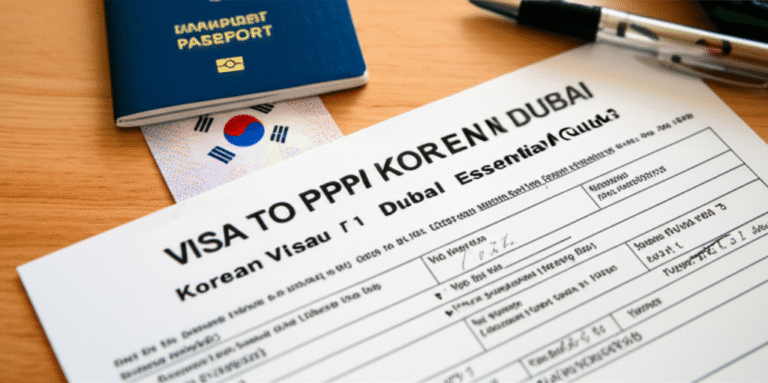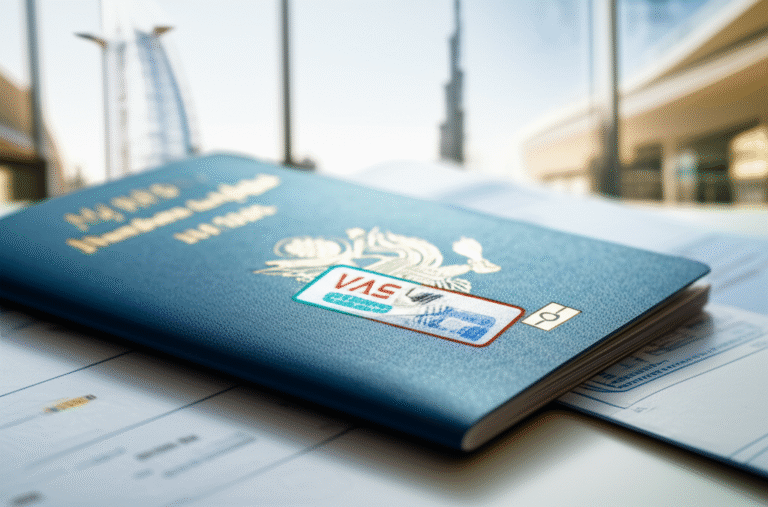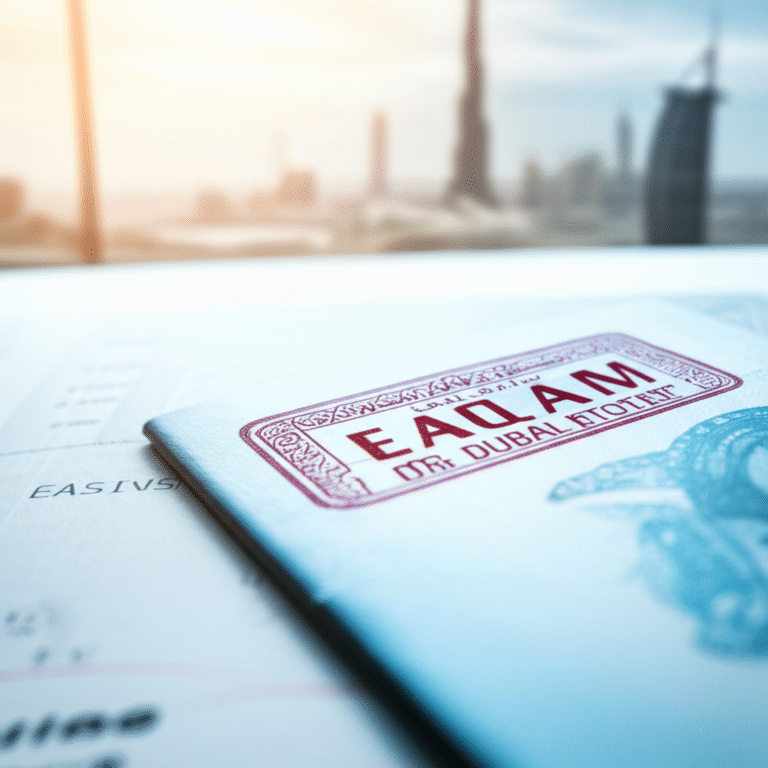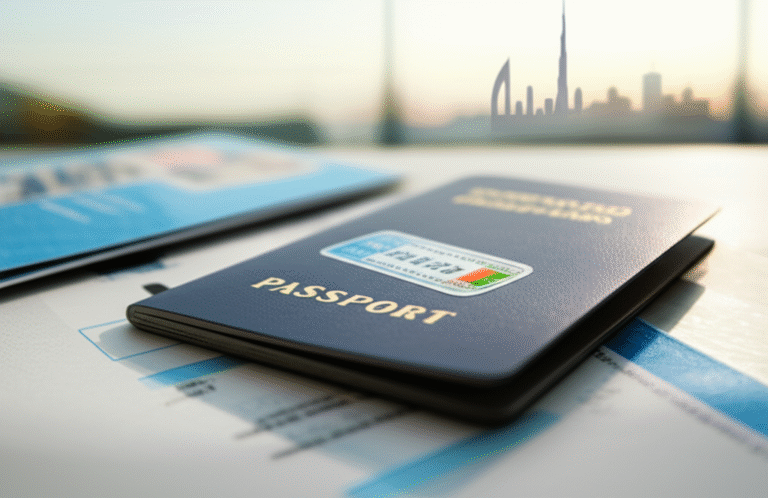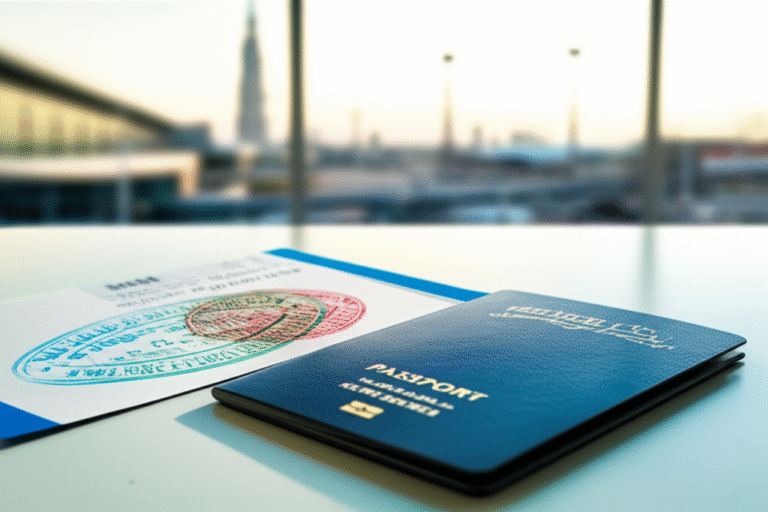How Long It Takes To Get Canadian PR

The timeline for obtaining Canadian Permanent Residency (PR) varies significantly, typically ranging from 6 months to over 2 years, depending on the immigration program, application completeness, and processing times.
Key Takeaways
- Understand various Canadian PR pathways.
- Factor in program-specific processing times.
- Ensure complete and accurate application submission.
- Prepare for potential delays and additional document requests.
- Monitor official processing time tools regularly.
- Plan your finances and settlement needs accordingly.
Dreaming of a new life in Canada? Many people from the UAE and around the globe envision making Canada their home. Navigating the path to Canadian Permanent Residency (PR) can feel like a maze, especially when you’re wondering: “How long does it actually take to get Canadian PR?” It’s a question that weighs heavily on the minds of aspiring immigrants. The truth is, there isn’t a single, simple answer. Canada’s immigration system is robust and diverse, offering multiple pathways to PR, each with its own set of requirements and processing timelines. This can make it confusing to pinpoint an exact timeframe. But don’t let the complexity deter you. We’re here to break down this important topic, guiding you through the factors that influence Canadian PR timelines and providing clarity on what you can expect. Let’s explore the journey to becoming a Canadian permanent resident, step by step.
Understanding the Factors Influencing Canadian PR Timelines
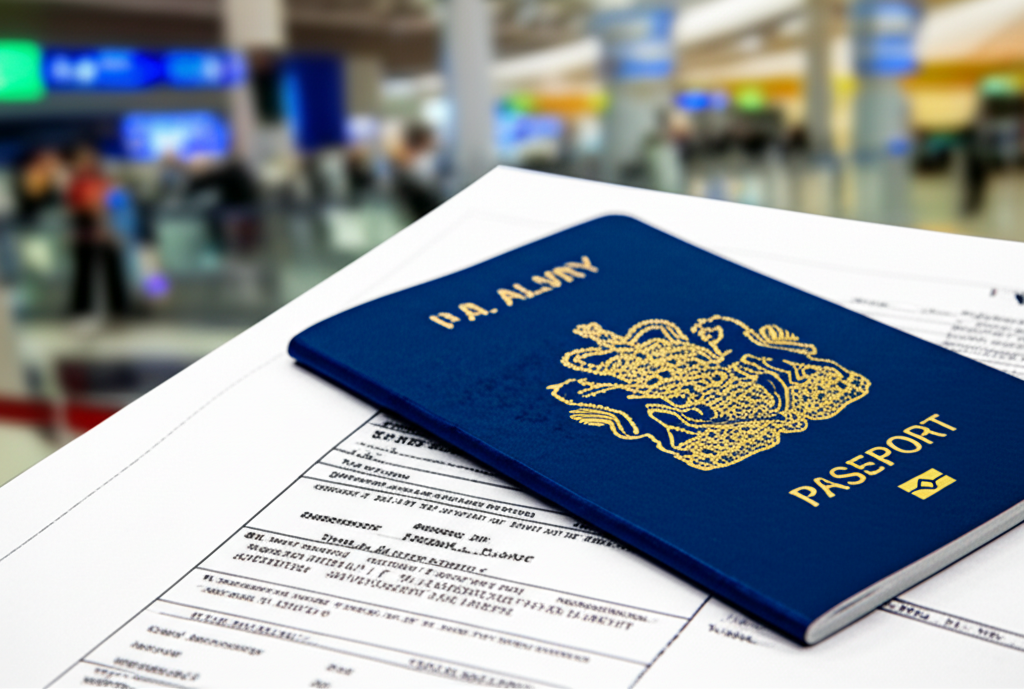
When you consider making Canada your new home, one of the biggest questions on your mind is undoubtedly: “How long does it take to get Canadian PR?” This is a perfectly natural question, and the answer is as varied as the individuals seeking to immigrate. Several key factors come into play, each capable of speeding up or extending your application process. Understanding these elements is the first step to setting realistic expectations for your Canadian immigration journey.
Immigration Program Choice
Canada offers a wide array of immigration programs, and the one you choose significantly impacts processing times. These programs are designed to attract individuals with specific skills, work experience, or investment capacity. Some programs are faster than others due to their specific objectives and the volume of applications they receive. For instance, certain express entry streams might be quicker for those who meet all the criteria perfectly, while others, like family sponsorship, may have different processing windows.
Application Completeness and Accuracy
This is perhaps the most critical factor you can control. A complete and accurate application is essential. Missing documents, incorrect information, or poorly translated supporting materials can lead to significant delays. Immigration, Refugees and Citizenship Canada (IRCC) will have to request more information, which adds weeks or even months to your case. Think of it like preparing a crucial report for your employer; the better organized and complete it is from the start, the smoother the review process will be.
Volume of Applications
Canada welcomes a large number of immigrants each year, and processing times can fluctuate based on the sheer volume of applications received. During peak immigration periods or when new, popular programs are launched, the system can become backlogged. This is similar to how popular services in Dubai, like renewing your Emirates ID or applying for a specific permit, can sometimes experience longer queues during busy seasons. IRCC works to manage these volumes, but it’s a factor that is largely outside of an individual applicant’s control.
Personal Circumstances and Complexity
Your individual circumstances can also influence how long it takes to get Canadian PR. Factors such as having a criminal record, inadmissibility issues, or requiring medical examinations can add complexity and time to the process. If you have dependents, their information also needs to be processed, adding another layer. Simpler cases generally move faster.
Government Processing Capacity and Policy Changes
Like any large organization, IRCC’s processing capacity can change due to staffing levels, operational efficiencies, or shifts in government policy. Budget allocations, new immigration targets, or changes in government can all affect how quickly applications are reviewed. While these are external factors, staying informed about any relevant policy announcements can provide insight into potential processing time impacts.
Common Canadian PR Pathways and Their Estimated Timelines
Canada’s immigration system is designed to be flexible, offering various routes to Permanent Residency. Each pathway has its own set of criteria and, consequently, its own processing time. Understanding these different streams is crucial to accurately estimate “how long it takes to get Canadian PR.”
Express Entry System
The Express Entry system is Canada’s primary method for managing skilled worker applications. It oversees three main economic immigration programs: the Federal Skilled Worker Program (FSW), the Federal Skilled Trades Program (FSTP), and the Canadian Experience Class (CEC). Applicants create an online profile and are ranked based on a Comprehensive Ranking System (CRS) score. IRCC holds regular draws, inviting candidates with the highest scores to apply for PR.
Estimated Timeline: Once invited to apply, the target processing time for Express Entry applications is around 6 months. However, this is a target, and actual times can vary. Factors like application completeness and the specific program stream within Express Entry can influence this. For example, CEC applications are often processed faster than FSW applications due to the Canadian work experience already obtained by applicants.
To get a clearer idea, you can check the most up-to-date processing times on the official IRCC processing times tool. This tool provides estimates based on different application types and intakes.
Provincial Nominee Programs (PNPs)
PNPs allow Canadian provinces and territories to nominate individuals who have the skills, experience, education, and work, to help grow their local economy. Each province and territory has its own unique PNP streams, tailored to their specific labour market needs.
Estimated Timeline: The timeline for PNP applications is generally longer than the 6-month target for Express Entry. This is because it involves two main stages:
- Provincial Nomination: This stage can take anywhere from 6 months to over 2 years, depending on the province and the specific PNP stream.
- Federal Application: Once nominated, you submit your PR application to IRCC. This federal stage typically adds another 6 to 18 months to the overall process.
So, in total, a PNP application can range from 1 year to potentially 3 years or more. The speed of the provincial nomination depends heavily on the province’s current immigration goals and application volumes.
Family Sponsorship
Canadian citizens and permanent residents can sponsor eligible family members to become permanent residents in Canada. This includes spouses, common-law partners, conjugal partners, dependent children, parents, and grandparents.
Estimated Timeline: Processing times for family sponsorship vary significantly based on the relationship category and the processing office. For example, spousal sponsorship applications processed from within Canada are often quicker than those processed from abroad. Generally, you can expect timelines to range from 12 months to 2 years or longer. IRCC provides specific estimated processing times for different family sponsorship categories on their website.
Caregiver Programs
Canada has specific programs for caregivers, such as the Home Child Care Provider Pilot and the Home Support Worker Pilot. These programs aim to fill the need for qualified caregivers in Canada.
Estimated Timeline: The processing time for caregiver programs can vary, but applicants should generally expect it to take around 12 to 24 months from the time of application submission to the final decision. This includes both the assessment of eligibility and the processing of the permanent residency application.
Atlantic Immigration Program (AIP)
The AIP is designed to help employers in Canada’s Atlantic provinces hire foreign skilled workers and international graduates who want to live and work in the region. It has specific streams for skilled workers and international graduates.
Estimated Timeline: The AIP is known for its relatively faster processing times compared to some other streams. The aim is to process applications within 12 months. This includes the provincial endorsement and the federal immigration application.
Step-by-Step Guide: Applying for Canadian PR
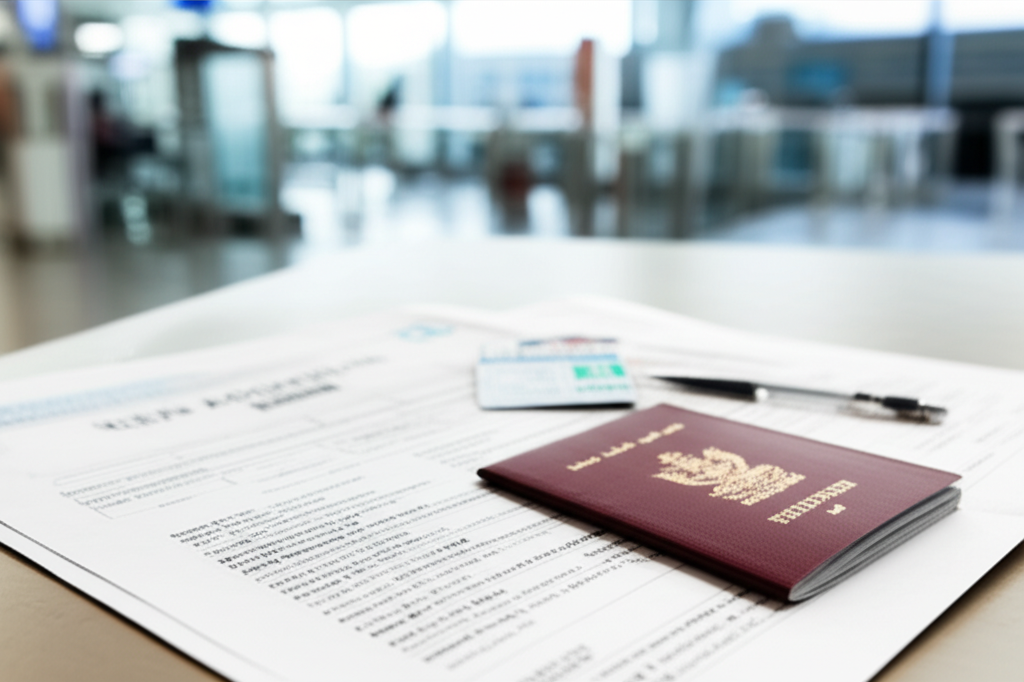
Embarking on the journey to Canadian Permanent Residency involves a structured process. While the specific steps might differ slightly depending on your chosen immigration pathway, the general framework remains consistent. Understanding these steps will help you navigate the application process more smoothly and reduce the chances of encountering unexpected delays. Think of this as your roadmap, ensuring you don’t miss any crucial turns.
Step 1: Determine Your Eligibility and Choose the Right Program
Before anything else, you need to figure out if you qualify for Canadian PR and which immigration program best suits your profile. This involves assessing your education, work experience, language proficiency (English or French), age, and other factors. Canada has numerous programs, from economic streams managed by Express Entry to specific provincial nominee programs, family sponsorship, and more. Resources like the official IRCC website are invaluable at this stage. You can also use online eligibility assessment tools provided by IRCC to get an initial idea.
Step 2: Gather Required Documents
Once you’ve identified a suitable program, the meticulous task of gathering documents begins. This is a critical phase where attention to detail is paramount. Common documents include:
- Proof of identity (passports, birth certificates)
- Educational Credential Assessments (ECAs) for foreign degrees
- Language test results (IELTS, CELPIP for English; TEF, TCF for French)
- Proof of work experience (letters of reference, employment contracts)
- Police certificates from countries you’ve lived in
- Medical examinations
- Proof of funds (for certain programs)
- Marriage certificates (if applicable)
Ensure all documents are accurate, complete, and translated into English or French by a certified translator if they are not already in one of these languages. Missing or incorrect documents are a primary cause of delays.
Step 3: Submit Your Application
The method of submission depends on the program. For Express Entry, you create an online profile first. If you receive an Invitation to Apply (ITA), you then submit a complete online application. For other programs, you might be required to submit a paper application or a separate online application through a provincial portal. Pay close attention to the specific instructions for your chosen program.
Step 4: Pay Application Fees
Immigration applications typically involve several fees, including processing fees, right of permanent residence fees, and biometrics fees. These fees must be paid at the time of application submission or as instructed by IRCC. Keep receipts for all payments.
Step 5: Biometrics and Medical Examination
Most applicants and their accompanying family members will need to provide biometrics (fingerprints and a photo). You will receive instructions on how and where to do this. You will also likely need to undergo a medical examination performed by an IRCC-approved panel physician.
Step 6: Await a Decision
After submitting your application and completing all necessary steps, you enter the waiting period. This is where the estimated processing times become relevant. IRCC will review your application, verify your documents, and conduct background checks. You may be asked for additional information or a further interview. It’s vital to respond promptly to any requests from IRCC.
Step 7: Receive Confirmation of Permanent Residence (COPR)
If your application is approved, you will receive a Confirmation of Permanent Residence (COPR). This document is your official confirmation of permanent resident status in Canada. You will also receive your permanent resident visa if you are applying from outside Canada.
Step 8: Land in Canada and Get Your PR Card
The final step is to “land” in Canada as a permanent resident. This usually happens at a port of entry (like an airport or land border crossing) when you first arrive in Canada after receiving your COPR. Your PR card will be mailed to your Canadian address shortly after you land. This card serves as proof of your permanent resident status in Canada.
Comparing Processing Times: Key Programs at a Glance
To help you visualize the differences, here’s a table summarizing the estimated processing times for some of the most popular Canadian Permanent Residency pathways. Remember, these are general estimates, and actual times can fluctuate.
| Immigration Program | Typical Processing Time (Estimate) | Key Considerations |
|---|---|---|
| Express Entry (Federal Skilled Worker, Federal Skilled Trades, Canadian Experience Class) | 6 months (after Invitation to Apply) | Requires meeting minimum eligibility. High CRS score needed for ITA. Fast if application is perfect. |
| Provincial Nominee Programs (PNPs) | 1-3 years (total) | Includes provincial nomination (6 months – 2+ years) and federal application (6-18 months). Varies greatly by province and stream. |
| Family Sponsorship (Spouse/Partner) | 12-18 months (can be longer) | Processing times depend on location of applicant and sponsorship processing office. |
| Atlantic Immigration Program (AIP) | Around 12 months | Requires a job offer from a designated Atlantic employer. Generally faster federal processing. |
| Caregiver Programs (e.g., Home Child Care Provider Pilot, Home Support Worker Pilot) | 12-24 months | Specific streams with unique eligibility and processing steps. Requires obtaining work experience in Canada first for some pathways. |
This table provides a high-level overview. For the most precise and up-to-date information, always refer to the official IRCC website and their processing time tool.
Pro Tips for Expediting Your Canadian PR Application
While you can’t control all aspects of the PR process, several practical steps can help ensure your application moves as smoothly and quickly as possible. Think of these tips as enhancing your efficiency, much like how smart technology streamlines services in Dubai, ensuring a better experience for residents.
Pro Tip: Thoroughly review the document checklist for your specific immigration program. Missing even a minor document can halt your application, leading to significant delays. Consider using a checklist and having a friend or family member review your submission before you finalize it.
Here are some additional tips:
- Master Your Language Test: Achieve the highest possible score on your IELTS, CELPIP, TEF, or TCF test. A higher score can significantly boost your CRS points in Express Entry or meet program-specific requirements, potentially leading to an earlier ITA.
- Get Your ECA Early: If your education was obtained outside Canada, get your Educational Credential Assessment (ECA) done as soon as possible. This process can take several weeks, and you’ll need it to claim points for your education.
- Organize Your Work Experience Proof: Employers can be busy. Request detailed reference letters for all your past relevant work experience well in advance. Ensure these letters include specific dates, job duties, and your position.
- Be Honest and Transparent: Never misrepresent information or omit details on your application. Any discrepancies found can lead to refusal and future inadmissibility. Honesty is the fastest route to a successful application.
- Respond Promptly to IRCC: If IRCC requests additional documents or information, act on it immediately. Delays in your response can slow down the entire process.
- Choose the Right Program: Carefully select an immigration program that genuinely aligns with your qualifications and goals. Applying to a program you barely qualify for will likely lead to a longer, more complex process, or even refusal.
Navigating the Biometrics and Medical Examination Process
Two essential steps in the Canadian PR application process are providing biometrics and undergoing a medical examination. While they might seem like routine procedures, they are critical for IRCC’s assessment of your admissibility and can be a point where delays can occur if not handled efficiently.
Biometrics Collection
Most applicants, and their accompanying family members, are required to provide fingerprints and a photograph. This is part of Canada’s security measures to verify identity. After you submit your application, you will receive a Biometric Instruction Letter (BIL) from IRCC. You must then book an appointment at a Visa Application Centre (VAC) or a designated biometrics collection point to submit your biometrics.
Timeline Impact: While the actual collection of biometrics is usually quick (often less than an hour), the availability of appointments at VACs can vary. It’s advisable to book your appointment as soon as you receive your BIL to avoid any unnecessary waiting. The processing of your biometrics data by IRCC also contributes to the overall application timeline.
Medical Examinations
A medical examination ensures that you do not have a medical condition that could pose a risk to public health or safety in Canada, or that would likely cause excessive demand on Canadian health or social services. You can either have a ‘medical exam’ upfront before you submit your application (especially for programs like Express Entry) or wait for IRCC to instruct you to do so. It’s generally recommended to complete an upfront medical exam if you know it’s required for your program, as it can potentially speed up the process if there are no issues identified.
Approved Panel Physicians: You must use a physician approved by IRCC to conduct your medical exam. IRCC provides a list of approved physicians in different countries. Ensure you use an official list and book your appointment with an authorized doctor.
Timeline Impact: The medical exam itself takes a few hours. However, if any specific tests or further consultations are required based on your health status, it can add weeks or months to the examination process. Similarly, the time it takes for the results to be processed and transmitted to IRCC also plays a role.
What Happens If There Are Medical or Criminal Issues?
If your medical examination reveals a condition that might make you inadmissible, or if your police certificates indicate a criminal record, IRCC will notify you. You will have the opportunity to submit additional information, provide explanations, or undergo further assessments. This can significantly extend your processing time and may require legal or medical advice to navigate. It’s important to be upfront about any potential issues in your application rather than trying to conceal them.
Frequent Questions About Canadian PR Timelines
Understanding the nuances of Canadian PR processing times can be challenging. Here are some frequently asked questions to provide further clarity.
Q1: What is the fastest way to get Canadian PR?
The fastest route is typically through the Express Entry system, specifically the Canadian Experience Class (CEC), for eligible applicants with Canadian work experience. If you have a high CRS score and receive an Invitation to Apply (ITA), the federal processing target is around 6 months. However, obtaining an ITA itself can take time depending on your score and the frequency of draws.
Q2: Can PR processing times change?
Yes, absolutely. Processing times are estimates and can change due to various factors, including the number of applications received, changes in government policies, operational efficiencies at IRCC, and the complexity of individual cases.
Q3: How can I check the status of my PR application?
You can check your application status online through your IRCC secure account (GCKey or Sign-In Partner). This portal is updated regularly with the progress of your application.
Q4: What happens if my application is delayed beyond the estimated time?
If your application is significantly delayed beyond the estimated processing time, you can contact IRCC through their web form to inquire about the status. However, be aware that there is a standard period after which inquiries are typically accepted to allow for processing.
Q5: Does getting a job offer speed up my PR application?
For some programs, like the Atlantic Immigration Program (AIP) or certain Provincial Nominee Programs (PNPs), a job offer from a Canadian employer is a mandatory requirement and can streamline the process. For Express Entry, a job offer can add CRS points, potentially helping you get an ITA sooner, but it does not directly speed up the federal processing time once you have the ITA.
Q6: How long is my PR application valid?
Once you receive your Confirmation of Permanent Residence (COPR), it is typically valid for one year from the date of your medical examination or until your passport expires, whichever comes first. You must land in Canada as a permanent resident before your COPR expires.
Q7: What if I am outside Canada and my passport is about to expire?
If your passport is expiring and you have not yet landed as a permanent resident, you must renew your passport. You will then need to inform IRCC of your new passport details. Failing to do so can lead to delays or issues with your Confirmation of Permanent Residence (COPR).
Conclusion
The question “How long does it take to get Canadian PR?” is complex, with answers that span from months to several years. The journey is influenced by the immigration program you select, the accuracy and completeness of your application, current application volumes, and your personal circumstances. While the federal processing target for an Express Entry application after invitation is around six months, pathways like Provincial Nominee Programs can extend the overall timeline significantly, often reaching over a year. By thoroughly understanding each step, meticulously preparing your documents, and staying informed through official channels like the IRCC website, you can navigate the immigration process more effectively. While some factors are beyond your control, a well-prepared and accurate application is your strongest asset in achieving your goal of becoming a Canadian permanent resident.


